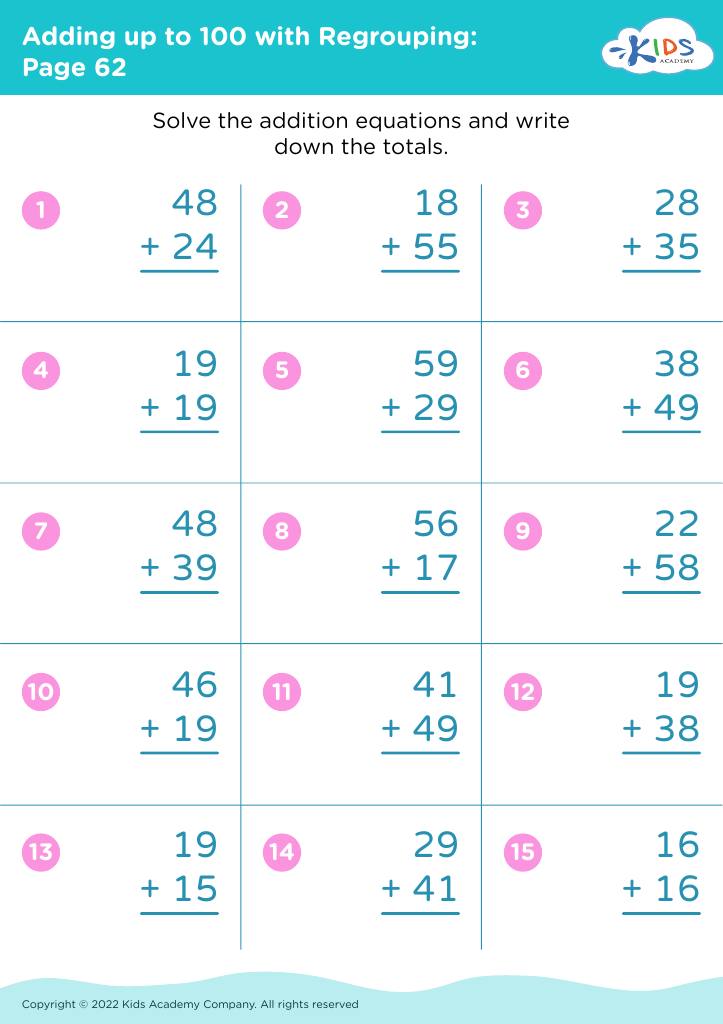Mathematical operations practice Worksheets for Kids
2 filtered results
-
From - To
Question/Answer
How to test a Grade 2 student’s Mathematical operations practice skills?
To test a Grade 2 student's Mathematical operations practice skills, provide a mix of addition, subtraction, and basic multiplication and division problems. Use numbers appropriate for their level, often up to 100 for addition and subtraction, and introduce simple multiplication tables and division facts. Include word problems to assess their ability to apply these skills in real-life scenarios.
What are some effective activities to train students’ Mathematical operations practice skill when teaching them about Adding up to 100 with Regrouping?
To train students in adding up to 100 with regrouping, effective activities include: 1. **Interactive Math Games**: Online platforms offer engaging games tailored to practicing addition with regrouping. 2. **Math Manipulatives**: Using base-ten blocks or place value charts helps students visualize the regrouping process. 3. **Partner Practice**: Pair students to solve and check each other's addition problems. 4.
How does the mastery of the Mathematical operations practice skill affect a student's performance at an early age?
Mastery of mathematical operations at an early age significantly enhances a student's performance by laying a solid foundation for understanding more complex mathematical concepts. It improves problem-solving skills, boosts confidence in dealing with numbers, and fosters a positive attitude towards learning math, leading to better academic outcomes in mathematics and related subjects throughout their educational journey.














